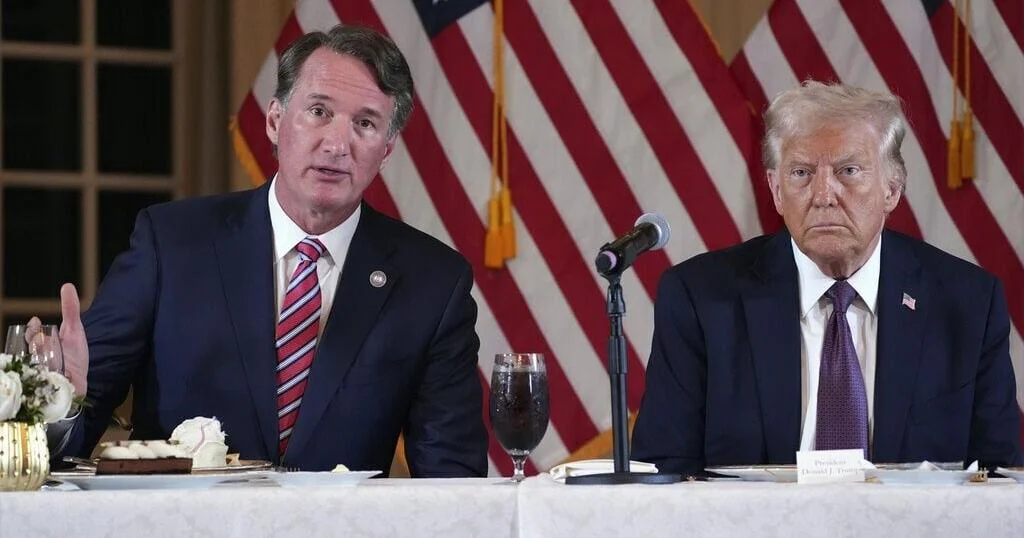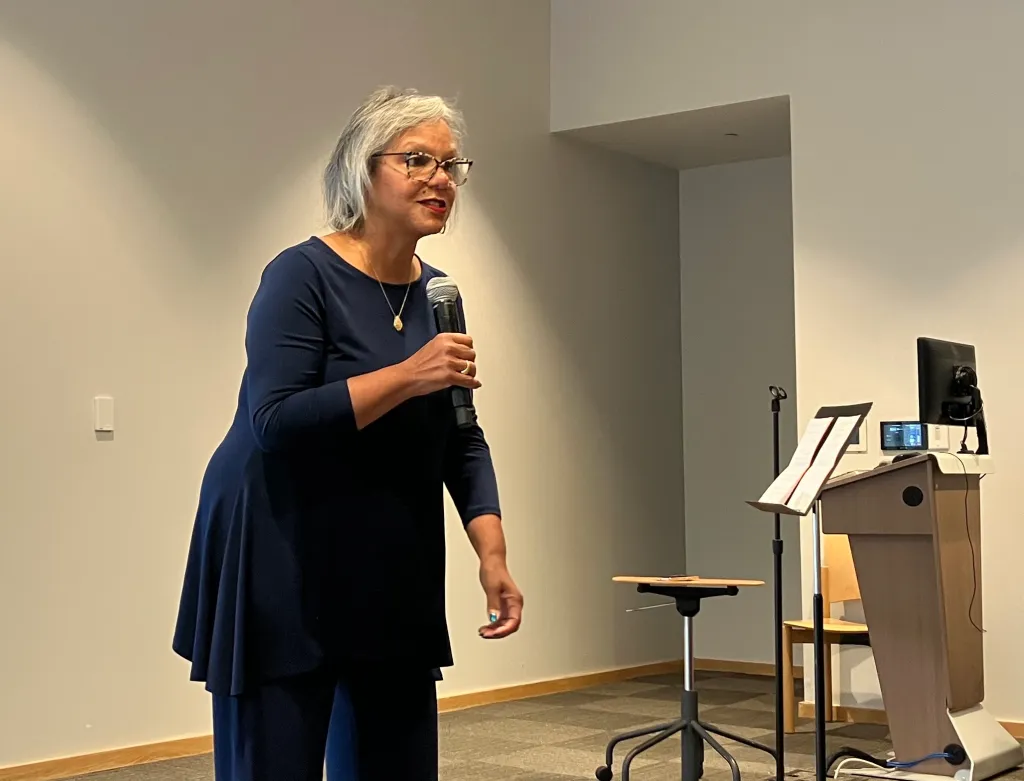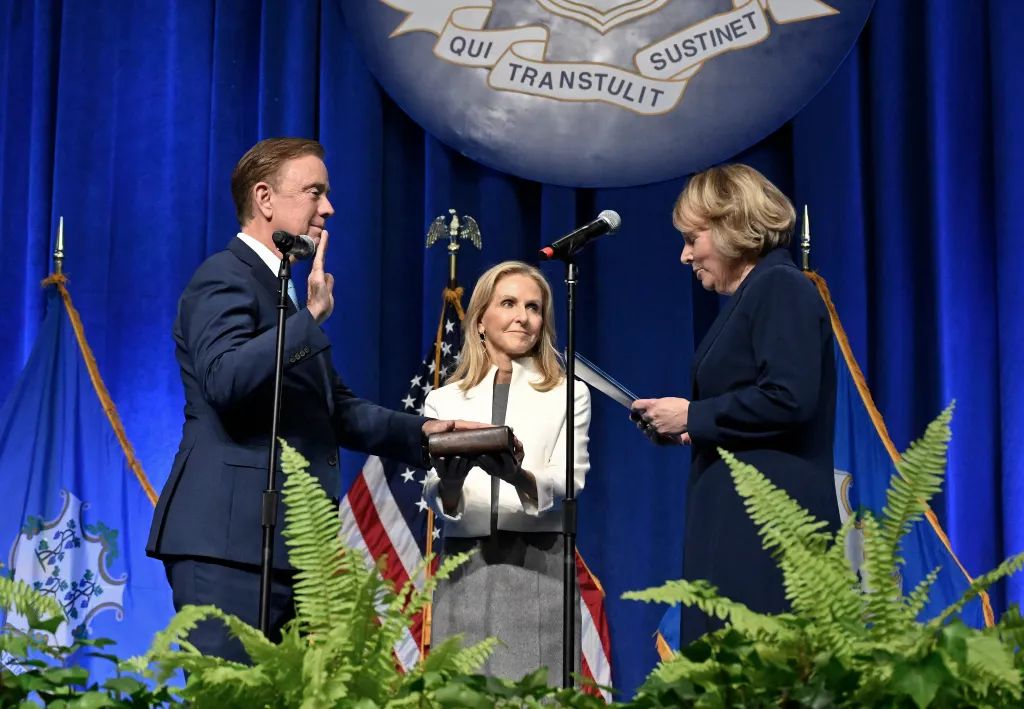
With more than $2 billion in expected bills in the drawer and the federal government shifting costs to states, Virginia lawmakers face hard choices on state tax policy to determine how much revenue they’ll have to pay for the services they provide now.
The One Big Beautiful Bill Act which President Donald Trump signed into law on July 4 pays for a massive package of tax cuts — some old, some new — with $1.2 trillion in cuts to federal spending on Medicaid, food assistance and other safety net programs.
Most changes to Medicaid policy will not take effect until after midterm congressional elections next year, but Virginia health care providers already are taking steps to prepare for steep cuts in reimbursements for the services they provide. For example, Augusta Medical Group has decided to close three primary and urgent care clinics in the rural Shenandoah Valley, citing $40 million in expected cuts to Medicaid funds it receives.
“It’s an existential battle,” said former Virginia Secretary of Finance Aubrey Layne, now executive vice president and chief administrative officer at Sentara Health, based in Norfolk.
Layne said providers face three choices: “Less people get covered, less services get covered or you get paid less to provide the services.”
“I don’t see how they solve the health care issue without looking at tax policy,” he said. “There’s just not enough revenue.”
Layne was finance secretary for then-Gov. Ralph Northam when state lawmakers last faced major choices on tax policy after Trump, in his first term as president, signed the Tax Cuts and Jobs Act in late 2017.
Like then, the General Assembly will have to decide whether to conform state tax policy to new federal policies, which House Appropriations Committee staff estimated at more than $1 billion in reduced state tax revenues. Those choices will include some options, such as deducting tips from deductible income, that the Democrat-controlled legislature considered and dismissed last year. Republican leaders argue that the money should return to taxpayers instead of spending it on state services.
“That is not a loss to the government — it’s a loss to the people,” Senate Minority Leader Ryan McDougle, R-Hanover, said.
McDougle is a member of the Senate Special Subcommittee on Impacts to Resources. It is scheduled to meet next month in Portsmouth to continue its examination of potential damage to Virginia’s economy and state revenue from Trump’s shifting tariff policy and cuts to the federal workforce and spending, on which the state depends.
Last Thursday, a House of Delegates emergency subcommittee released its report on the potential effects on the next two-year budget. Gov. Glenn Youngkin will introduce a proposed two-year budget in December for the General Assembly to consider in a 60-day session that will begin in January, after Youngkin leaves office.
K-12 and Medicaid
The legislature’s money committees are still waiting for updates on costs for K-12 public education and Medicaid, but House Appropriations staff gave a preliminary combined estimate of $1.75 billion over two years. The Trump tax bill shifts part of the cost for food assistance under the Supplemental Nutrition Assistance Program, otherwise known as SNAP or food stamps, to the state, which could be required to pay up to $360 million a year for its expanded share.
Health care coverage would suffer if Congress fails to extend enhanced federal premium tax credits that lower the cost of health policies on Virginia’s insurance marketplace, but replacing the federal money would cost the state an estimated $250 million. The Kaiser Family Foundation estimates that 350,000 Virginians will lose their health care coverage because of the expiring tax credits and the new law’s changes to Medicaid, requiring able-bodied recipients to work, go to school or volunteer for the community, while requiring the state to review eligibility twice a year instead of once.
“The recent federal bill will be damaging to the people of Virginia and also to our state’s capacity to help families in need,” said Ashley Kenneth, president and CEO of the Commonwealth Institute, a liberal think tank in Richmond that outlined potential effects in two reports.
Youngkin, in a letter last Thursday to Democratic leaders of the House budget and emergency committees, acknowledged that “approximately 40,000 individuals may choose not to enroll in or leave the Medicaid program due to these work requirements,” but he added that they would be “electing to forgo coverage to avoid responsibility.”
The governor emphasized his efforts to reduce or eliminate additional costs under SNAP by working with local social services to bring down the error rate for determining eligibility for benefits. He also cited the Trump tax law’s inclusion of $50 billion nationwide — or $100 million annually in Virginia for the next five years — to help rural hospitals and health systems that could be hurt by the law’s restrictions on state provider taxes that have boosted Medicaid reimbursement for their services closer to the cost of providing them.
Economic outlook
Youngkin also painted a much more optimistic picture of Virginia’s economy than the House report, which cited a slowing job market and rising unemployment because of Trump policies, as well as cuts in the federal workforce that are expected to increase substantially by the end of this month. Virginia’s unemployment rate has risen for seven consecutive months, although it remains below the national rate.
“As we collectively prepare for my budget submission in December, it is important to remember that jobs and wages continue to grow, and consumers remain resilient,” Youngkin told House Appropriations Chairman Luke Torian, D-Prince William, and Emergency Committee Chairman David Bulova, D-Fairfax.
Youngkin also reminded them that Virginia ran a revenue surplus of $572 million in the fiscal year that ended June 30 and has $900 million available in additional one-time revenues from his vetoes of budget appropriations that the assembly had approved in late February, as well as about $300 million in other appropriated but unspent revenues.
Democratic lawmakers are not convinced it will be enough to cover their obligations and protect core services under threat from the Trump tax bill.
“We had some good budget years, largely because of the national economy,” said state Sen. Creigh Deeds, D-Charlottesville, a member of the Senate Finance & Appropriations Committee. “The national economy has been wrecked by the uncertainty of tariffs and the job cuts.”
As a result, Deeds, chairman of the Virginia Behavioral Health Commission, said the state may not be able to afford to fund other priorities, such as expanding the Marcus Alert system to reduce the chance of fatal encounters between police and people in mental health crisis. Marcus-David Peters, an unarmed, mentally ill Richmond man, was shot to death by a city policeman in 2018.
“And so, while I’d like to say this is something we need to fix, we need to figure out better funding,” Deeds said. “We’re going to have challenges to doing that over the next several years.”
Taxing cannabis sales?
The state has $4.5 billion in reserves, but most of that can’t be touched under the state Constitution without a steep revenue shortfall, so lawmakers might look at new sources of revenue, such as taxing cannabis sales in a legalized market or expanding the sales tax to apply to some services, as Youngkin proposed last year as part of a failed “package deal” of tax cuts.
House Finance Chair Vivian Watts, D-Fairfax, said her committee will take a hard look at tax policy provisions of the Trump tax bill, such as changes in business expense write-offs on taxes that could have a big impact on state revenues.
“I’ve seen governors propose tax structures thinking about efficiency, or ivory-tower thoughts on policy, but sometimes we need to think about revenue,” Watts said.
On cannabis, Youngkin has vetoed legislation to legalize, regulate and tax the market, as the state does with alcoholic beverages.
“Youngkin has left a billion dollars of revenue off the table during his governorship,” House Majority Leader Scott Surovell, D-Fairfax, said.
McDougle, his Republican counterpart, said the state has ample revenues to meet its needs.
“It’s clear our revenues are growing substantially and there will be more money to make decisions with,” he said.
Youngkin has not yet said publicly how he proposes to address the tax policies in the One Big Beautiful Bill Act.
Torian, in blunt remarks to the House emergency committee last Thursday, said its report belies the governor’s confidence in the economy.
“We can tout how strong our economy is right now, and it is in a good position, but I want to alert my colleagues that we have been forewarned this morning that there are going to be some changes and there are going to be some challenges we will have to face,” he said.
In the Senate, Deeds said, “Our work is cut out for us.”
Michael Martz
(804) 649-6964
mmartz@timesdispatch.com
Dave Ress (804) 649-6948
dress@timesdispatch.com
Get Government & Politics updates in your inbox!
Stay up-to-date on the latest in local and national government and political topics with our newsletter.
* I understand and agree that registration on or use of this site constitutes agreement to its user agreement and privacy policy.



